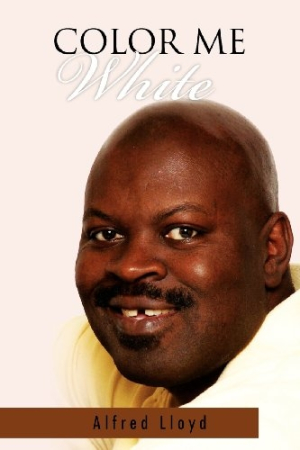Color Me White
In Color Me White, Jamaica-born writer and musician Alfred Lloyd asks the reader to walk in his shoes—to experience love won and lost as well as the harsh reality of a society that has lost its values. The seventy-five poems in this collection paint a vivid picture of the immigrant’s dream undone in a world where “The poorer men / Will only make headlines / By leading a life of crime.”
Lloyd has released two reggae albums, and his musical background shines through in the form of his poems. Like nursery rhymes, Lloyd’s work contains rich morals and life lessons, and he usually applies a recurring “abab” rhyme scheme. For example, “Heralding the Times” discusses how people take justice into their own hands: “But why take him to court / When the judge will let him go / So they resort to meting justice / In the only way they know.” The weight of the subject matter and the sing-song rhyme scheme work together to strengthen the message.
Some of Lloyd’s poems empower the disenfranchised and give them a voice. “From Your Secretary” is an epistolary poem where a secretary speaks to her boss, addressing the complexities of “deciphering your print / interpreting your hints.” Here, Lloyd experiments with space and uses parentheses to show the secretary’s inner thoughts. Poems like “Quata Million” and “Mi Sista Cum Fraa Fahrin” draw on the unique Jamaican dialect. These poems give the marginalized a chance to speak about their day-to-day struggle and how “ebrybody a try fi mek it.”
Unfortunately, the collection is lopsided and uneven. A poem like “My Roots” begins with a subtle yet effective image of the speaker sitting on a rock: “a picture of dirt and soot / watching dad sup from a pot.” Conversely, a poem like “I Am Depressed” is too obvious when declaring that the speaker is “helpless … loveless,” and in “need [of] a friend.” Poems like “All of You” and “I Need You” contemplate love, but neither sheds light on the relationship or the woman, or why the speaker “does not deserve” them. Without playful imagery, word play, or metaphors, such poems fall victim to cliché. The collection is also printed in too many fonts and point sizes; the cursive font is particularly difficult to read.
Some of the poems are too ambitious, especially those containing political subject matter. They are attempts at discussing race, but they lack metaphors or stories to drive the message home. In the title poem, the speaker asks the reader to “color him white” so he can “color you black.” Though Lloyd asks readers to confront their own stereotypes, the poem does not explain what the experience is actually like when “they slam their door on you.”
Lloyd’s most successful poems are snapshots of moments. Because these pieces aren’t attempts at conveying deep meaning or even a strong message, they are focused and contain vivid language. For example, “The Baby” describes the “toothless grin” and “hive of activity” of a child.
While his work is uneven, Lloyd is able to boldly address a range of topics, including some difficult subject matter. These poems give readers a space to come together and experience Lloyd’s Jamaican culture and to delve just a bit into tough subject matter.
Reviewed by
Lisa Bower
Disclosure: This article is not an endorsement, but a review. The publisher of this book provided free copies of the book and paid a small fee to have their book reviewed by a professional reviewer. Foreword Reviews and Clarion Reviews make no guarantee that the publisher will receive a positive review. Foreword Magazine, Inc. is disclosing this in accordance with the Federal Trade Commission’s 16 CFR, Part 255.

